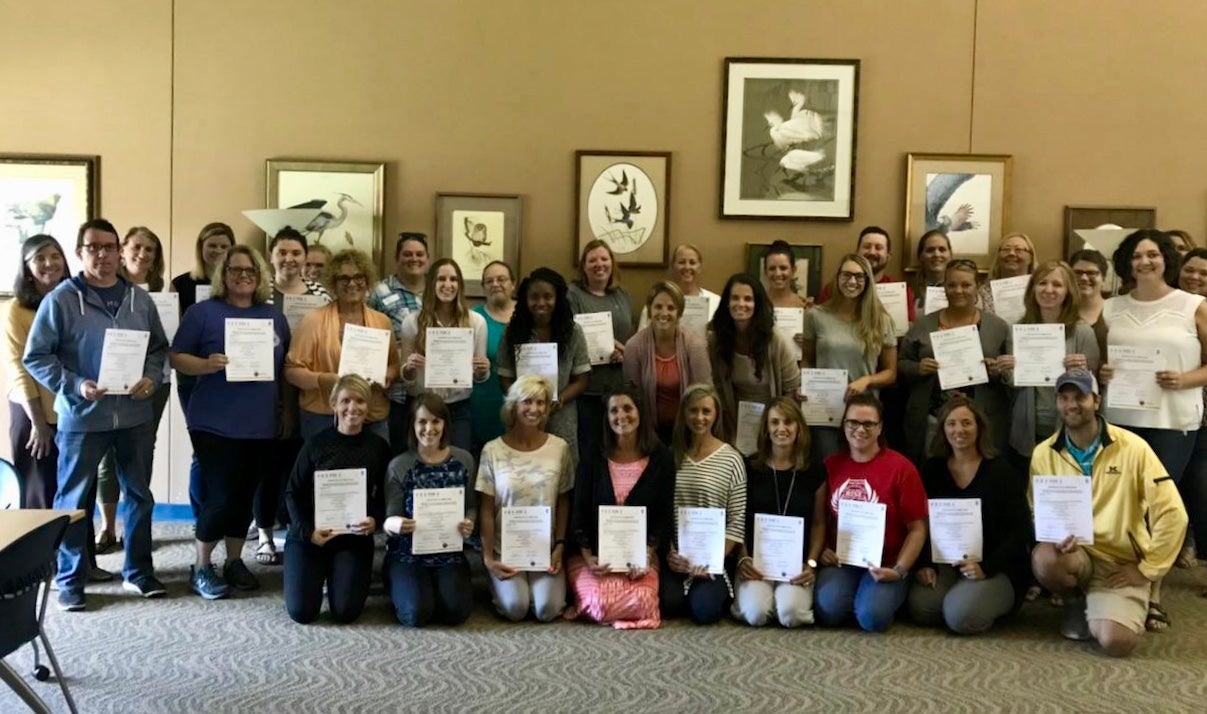JCS crisis response program modeled after national evidence-based model
Published 10:23 am Thursday, September 6, 2018
After responding to the Marshall County High School shooting earlier this year, Youth Service Center Coordinator Kelli-Lynn Canup and Jessamine County School Psychologist Allison Hardin went to work to implement a national model for crisis prevention to better serve the well being of JCS students.
“Attending that mental health assistance, we were grateful of Jessamine County efforts with crisis prevention and response and believed our community could grow by implementing a national model to serve the psychological well being of our students,” Canup said. “I reached out to KY-ASAP and Bluegrass.org for funding and spoke with Amber Bruner, leader of our District Trauma Informed Care, to begin a dialogue on how we could strengthen our community support system. Joe Bruner, associate dean of Resident Life at Asbury, believed in the value of community collaboration and several faculties attended the workshops to gain perspective on our efforts for the students. Asbury was generous to allow the workshops to be held on their campus.”
A previous plan was set forth in 2016, Canup said, although the new national evidence based model being used is the PREPaRE curriculum, said Canup.
“What we have been doing in the past was a wonderful effort, but this national model has helped us rise to a new level using the most recent strategies for helping students during a crisis,” Canup said.
Being the YSC coordinator for East and West Jessamine High Schools, Canup said JCS defines a crisis as a state of emotional turmoil and more than simple stress. The Crisis Response Team at JCS is comprised of guidance counselors, school psychologist, and a Family Resource Youth Service Center to respond to the mental health of JCS students or families.
The PREPaRE curriculum incorporates six aspects: prevent, reaffirm, evaluate, provide and respond and examine.
“This gives everyone responding to a crisis the common language and skills to work with students by outlining guidance for small group settings and classroom interventions,” Canup said. “It provided us the tools to communicate which students to help based on the trauma associated with various factors in students living at home. Most importantly, it is in working with students coping after a traumatic event.”
Canup said, their efforts go forth to be able to provide families, students and teachers with knowledge as well as mental health and support services from Jessamine Early Learning Village to all high school attended the training to best serve all our families.
“The Workshops with support staff really focused on Mental Health needs versus Physical Safety,” Canup said. “However, it is important that our district always takes a ‘team’ approach in responding to any crisis. This model combines efforts across our schools to develop nurturing, resilient, and trauma informed community.”



